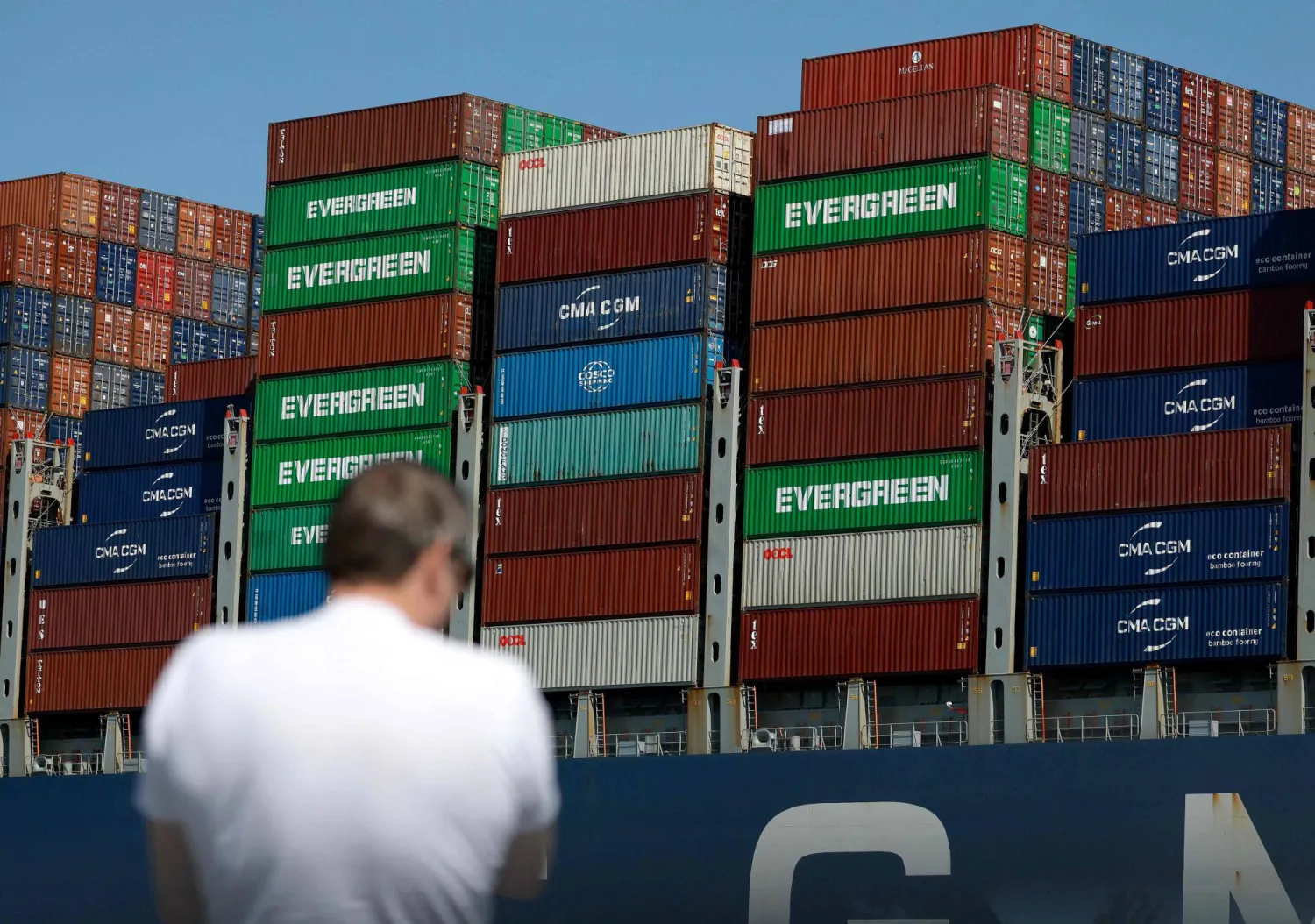US President Donald Trump has ramped up his trade war against China, further raising import tariffs on Beijing to 125 percent despite pausing them for other countries.
The move came hours after China announced reciprocal action against the United States in response to a previous levy hike.
AFP looks at how the escalating trade war between the world's two biggest economies is playing out -- and what impact it might have:
What actions has Trump taken so far?
Trump said Wednesday that the US would raise tariffs on Chinese imports to a staggering 125 percent, citing a "lack of respect" from Beijing.
The announcement came as the mercurial president announced a halt on tariffs for other nations for 90 days, following panic on global markets.
The new levy on China marked the latest salvo in a brewing tit-for-tat trade war between the two global superpowers.
A previous round of US tariffs had come into force earlier on Wednesday, jacking up duties on China to 104 percent.
As well as the blanket levies, China is also under sector-specific tariffs on steel, aluminium and car imports.
How has China responded?
China has vowed to fight the measures "to the end" and so far has unveiled reciprocal tariffs each time Trump has upped the ante.
Responding to the 104 percent duties on Wednesday, Beijing said it would raise its own tariffs on US imports from 34 percent to 84 percent, effective from Thursday.
It also said it had filed a complaint with the World Trade Organization (WTO), citing "bullying" tactics by the Trump administration.
China had not responded to the latest hike in tariffs to 125 percent levies as of Thursday morning.
But its countermeasures have begun to step outside the economic sphere, with government departments warning citizens of the "risks" of travelling to the US or studying in parts of the country.
And while Beijing has blasted the US with fiery rhetoric, it has continued to urge "equal dialogue" to resolve the trade spat.
Zhiwei Zhang, chief economist at Pinpoint Asset Management, said China had sent a "clear signal" that it would not back down, adding that there was "(no) quick and easy way out" of the conflict.
Haibin Zhu, chief China economist at J.P. Morgan, agreed, saying "the bar for a possible deal is high".
- Why is China so vulnerable to tariffs? -
Trade between the world's two largest economies is vast.
Sales of Chinese goods to the US last year totaled more than $500 billion -- 16.4 percent of the country's exports, according to Beijing's customs data.
And China imported $143.5 billion in goods from the United States in 2024, according to the office of the US Trade Representative.
That trade was dominated by agricultural products, primarily oilseeds and grains, according to the US-China Business Council. Oil and gas, pharmaceuticals and semiconductors are also among major US exports to China.
Beijing has long drawn Trump's ire with a trade surplus with the United States that reached $295.4 billion last year, according to the US Commerce Department's Bureau of Economic Analysis.
Chinese leaders have been reluctant to disrupt the status quo, in part because the country's export-driven economy is particularly sensitive to vicissitudes in international trade.
US duties also threaten to harm China's fragile post-Covid economic recovery as it struggles with a debt crisis in the property sector and persistently low consumption -- a downturn Beijing had sought to slow with broad fiscal stimulus last year.
But an intensified trade war will likely mean China cannot peg its hopes for strong economic growth this year on its exports, which reached record highs in 2024.
What impact will US tariffs have?
The head of the WTO said Wednesday that the US-China tariff war could cut trade in goods between the two countries by 80 percent.
Given the two economic giants account for three percent of world trade, the conflict could "severely damage the global economic outlook", Ngozi Okonjo-Iweala said.
Analysts expect the levies to take a significant chunk out of China's GDP, which Beijing's leadership hope will grow five percent this year.
Likely to be hit hardest are China's top exports to the United States -- everything from electronics and machinery to textiles and clothing, according to the Peterson Institute of International Economics.
And because of the crucial role Chinese goods play in supplying US firms, the tariffs may also hurt American manufacturers and consumers, analysts have warned.
Paul Ashworth, chief North America economist at Capital Economics, said it was "difficult to see either side backing down in the next few days".
But, he added, "talks will eventually happen, although a full rollback of all the additional tariffs... appear unlikely".











